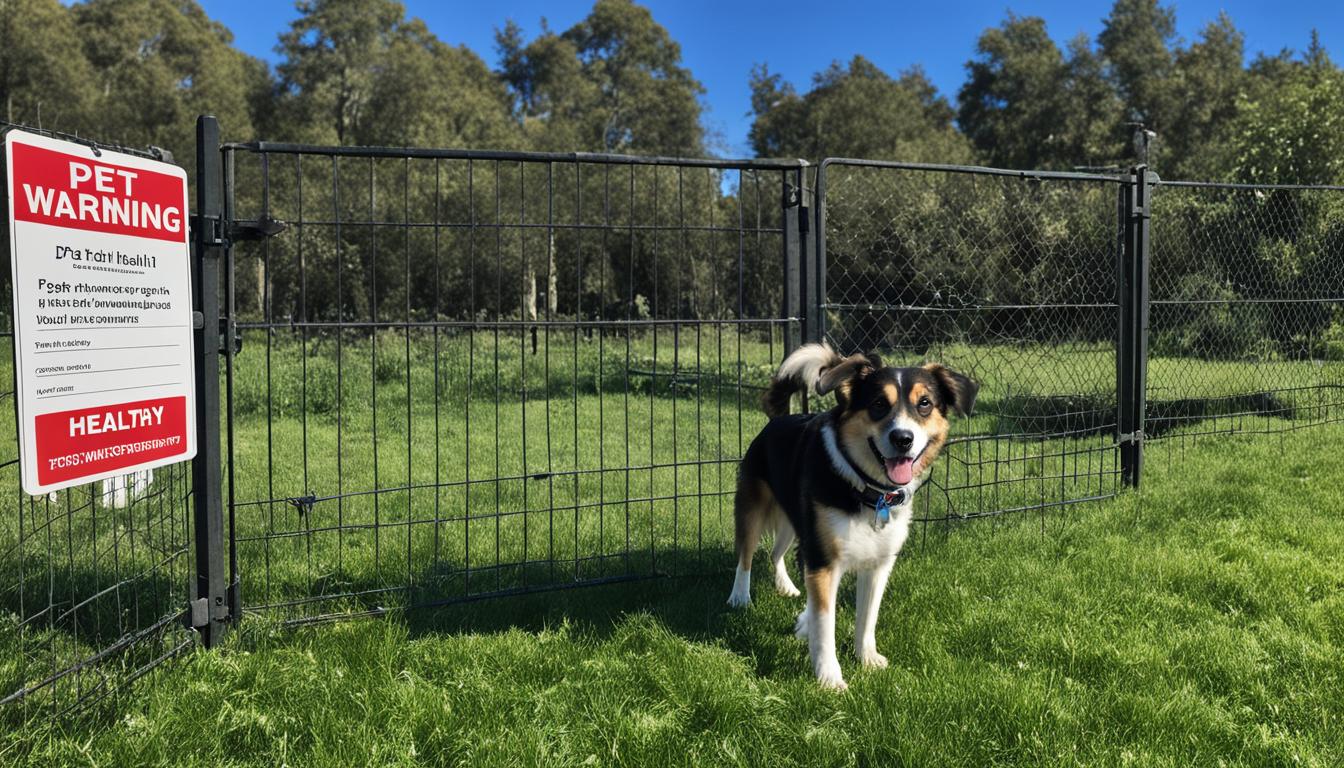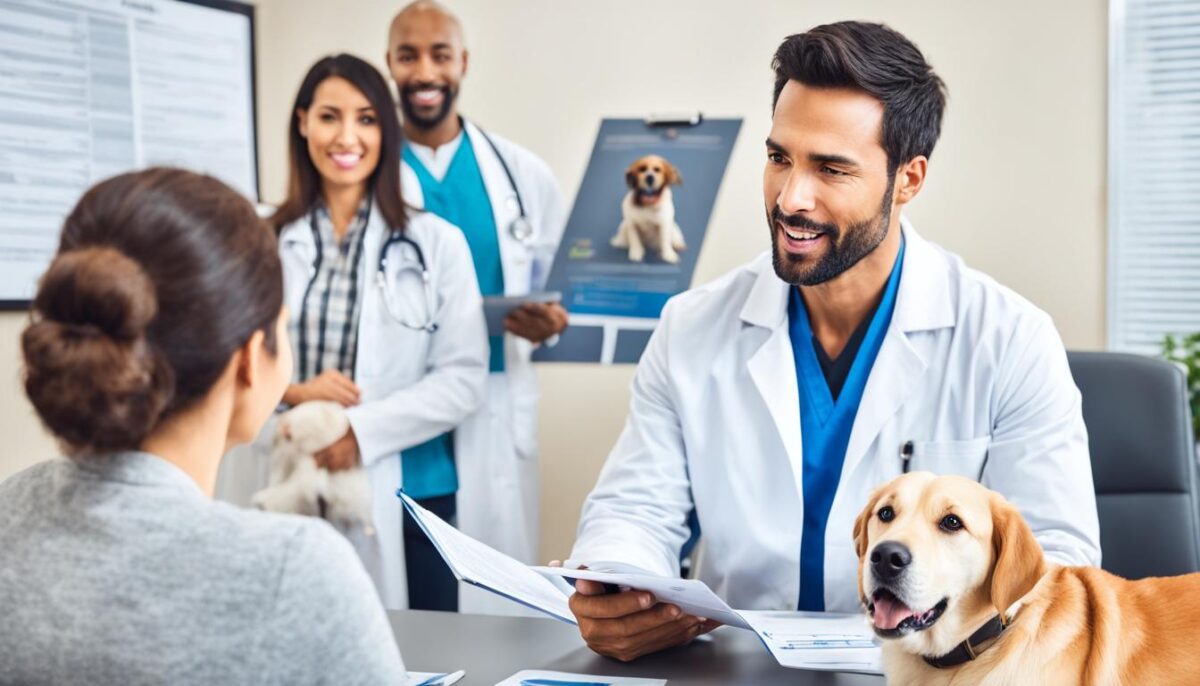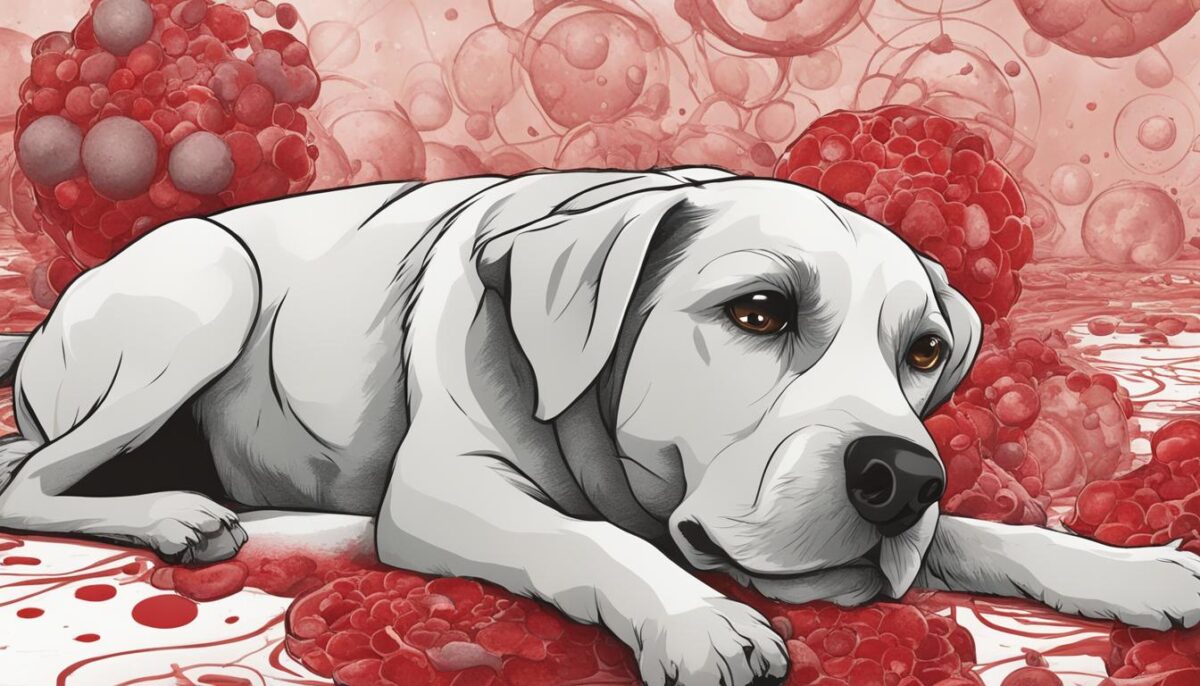If you love dogs, you know they are like family. We want to make sure they are happy and healthy. Have you ever heard of mono in people? It’s short for mononucleosis and is also called the “kissing disease.” You might be wondering if your four-legged buddy can get mono too, because they sure do like to give kisses! Good news: the virus that gives people mono, called the Epstein-Barr virus, doesn’t make dogs sick in the same way. Dogs can be around the virus and be just fine. So, don’t worry about those doggy kisses—they are safe!
However, keeping your dog safe is still very important. Just like people, dogs can get sick from different bugs and viruses. When we take care of our dogs and watch out for their health, we help them stay away from sickness. This means they can keep playing and being our best friends for a long time. Let’s learn more about canine health and what we need to watch out for to keep our furry friends healthy and happy.
Key Takeaways
- Dogs don’t get sick from the Epstein-Barr virus the same way people do.
- Keeping an eye on canine health helps our dogs stay healthy and strong.
- We don’t have to worry about pet mono risks when getting doggy kisses.
- Staying informed about infectious diseases in dogs keeps them safer.
- Understanding how viruses affect dogs differently than humans is important.
Exploring Mononucleosis in Humans and Its Effects
Have you ever heard someone talk about mono, or the kissing disease? Let’s talk about what it is, how people get it, and what signs show up when someone has it.
What is Mononucleosis?
Mononucleosis, or mono for short, is a sickness that can make people feel really tired and sore. Doctors say it’s caused by the Epstein-Barr virus. That sounds pretty serious, but don’t worry too much. Most times, people get better all on their own.
Symptoms of Mono in People
If a person has mono, they could have a fever or a sore throat. Some people might even get puffy areas around their neck. All these signs could mean that the Epstein-Barr virus is making them feel not so great.
How Mono Spreads From Person to Person
You might wonder how people get mono. Well, it usually travels in saliva—the wet stuff in your mouth. That’s why some call it the kissing disease! But, it’s not just from kissing. Sharing stuff like cups or being near when someone coughs can pass it around too.
| How Mono Spreads | Common Signs You May Have Mono |
|---|---|
| Kissing | Fever |
| Sharing drinks or food | Sore throat |
| Close to someone coughing | Feeling really tired |
| Sharing utensils | Swollen neck |
Can Dogs Have Mono? Debunking the Myths
Hey there! You might have heard that when you get sick, your furry friend could get sick too. Sometimes, you might worry if your cold or mono could jump to your dog. But guess what? When it comes to dogs and mono
Dogs are really good at being our best friends. They play with us, cuddle, and sometimes even try to eat our snacks. But they don’t get sick with canine infectious diseases the way we do. The virus that gives people mono, it’s not a dog thing. So, no need to worry about giving your dog a cheeky kiss!
Here’s a simple way to remember some things that are just for humans and what’s for dogs:
| For Humans | For Dogs |
|---|---|
| Mono (from Epstein-Barr virus) | Other doggy illnesses (not mono) |
| Common cold | Dog cold (yep, they get their own kind) |
| Chocolate treats | Dog treats (chocolate is a no-no for dogs!) |
So next time you’re home with a case of the sniffles or even mono, your dog will likely just wonder why you’re not playing fetch. It’s not because they’re sick like you. Dogs can carry some of the same germs we do, but it doesn’t mean they feel bad in the same way. Time to bust the myth about dog health myths! Dogs just do their dog thing, while we do our human thing. Simple, right?
The Truth About Epstein-Barr Virus in Dogs
Just like people, dogs can have a virus inside them called the Epstein-Barr Virus (EBV). But it doesn’t make them sick in the same way. Your furry friend can show different signs or might not get sick at all. Understanding EBV is important for keeping pups happy and healthy.
How EBV Affects Dogs Differently
EBV is known for causing trouble in people, but when it comes to dogs, it’s less likely to cause them to feel unwell. While canine friends may carry the virus, they often live happy, tail-wagging lives without a cough or a sniffle.
Understanding the Symptoms in Dogs
If a dog does feel sick from EBV, you might notice that they don’t want to eat or have trouble swallowing. Sometimes, you can feel swollen glands in their neck. Watching out for these signs will help your dog stay comfy and cosy.
Diagnosing and Handling EBV in Canine Companions
When your dog visits the vet, they can check if your dog has EBV by taking a little bit of blood and testing it. If they find EBV, they help by making sure your dog has strong bodyguards—also known as an immune system—to fight it. It’s like giving your dog a superhero cape! The vet keeps an eye out to make sure nothing more serious, like canine lymphoma, is going on.
Remember, dog health treatments are all about giving love and care to your furry family member!
| Signs of EBV in Dogs | What You Can Do |
|---|---|
| Not eating well | Offer yummy, healthy food |
| Swollen neck glands | Gentle neck rubs and vet visit |
| Difficulty swallowing | Soft foods and lots of fresh water |
Preventing and Treating Dog Health Issues Related to Viruses
Keeping your dog healthy and happy is important. You do this by looking after them every day. One way to help your dog stay healthy is by stopping them from getting sick. You can make sure they don’t eat your food or use your spoon or cup. Dogs need their own toys and treats that are safe and free from bad stuff. Just like some people can’t eat peanuts, some dogs can’t eat certain treats. For example, peanut butter is okay, but it should not have sugar or bad fats. There’s also something called xylitol. It’s in some foods, and it’s not good for dogs. So you should keep it away from them.
If your dog seems sick, a vet can help them feel better. The vet checks to make sure your dog is strong. They help with medicine if your dog has a virus. It’s like how you go to a doctor when you’re not feeling well. Just like you, dogs need to eat good food to help their body fight off sickness. It’s also good to make sure they have a clean place to sleep and play. When you keep your dog’s home clean, you help them stay away from germs that can cause problems.
Remember, looking after your dog means thinking about their health before they even get sick. Give them the right food and treats, don’t let them have things that can hurt them, and see a vet for regular check-ups. That’s how you take great care of them! When you do these things, you are doing what’s called preventative pet care. It keeps your dog away from canine viral infections and means you’re doing a great job in treating dog illnesses if they happen.
FAQ
Can dogs contract mononucleosis from humans?
No, dogs cannot get mononucleosis as humans do. The Epstein-Barr virus, which causes mono in humans, doesn’t affect dogs in the same way.
What are the symptoms of mono in people?
Symptoms of human mononucleosis include fever, sore throat, swollen lymph nodes, and fatigue. It’s often transmitted through saliva, hence its nickname “kissing disease.”
Can my dog get sick from the Epstein-Barr virus?
While dogs can carry the Epstein-Barr virus, it doesn’t typically cause the same illness in them as it does in humans. They may show different symptoms, but it’s not considered mono.
How does the Epstein-Barr virus affect dogs differently than humans?
The EBV has evolved differently in dogs. If dogs show any symptoms from an EBV infection, they might include swollen neck lymph nodes, difficulty swallowing, and a decreased appetite, but these are not typical mono symptoms experienced by humans.
What are the signs that my dog might be unwell from an EBV infection?
While it’s rare for dogs to show symptoms from an EBV infection, keep an eye out for signs like swollen neck lymph nodes, trouble swallowing, and a lack of interest in food. If you see these symptoms, a veterinary check-up is recommended.
How is an EBV infection diagnosed and treated in dogs?
Vets can diagnose an EBV infection in dogs through a blood test. Treatment mainly supports the dog’s immune system and involves monitoring for more serious conditions, such as cancer.
What preventive measures can I take to protect my dog from viral infections?
Preventing viral infections in dogs involves not sharing food that could pass on viruses, choosing safe toys and treats, and avoiding ingredients like xylitol which is toxic to dogs. Also, keeping your dog’s living space clean and having regular health check-ups contribute to their overall well-being.
If my dog does get a viral infection, how should they be treated?
Treating a dog with a viral infection includes providing good nutrition, ensuring their living space is clean, and sometimes administering medications prescribed by your vet to support their immune system and combat the virus.
Is it safe to give my dog peanut butter as a treat?
Peanut butter can be a good treat for dogs, but you must choose a brand without harmful additives. Avoid peanut butter with sugar, unhealthy fats, and xylitol, as this artificial sweetener is particularly toxic to dogs.


